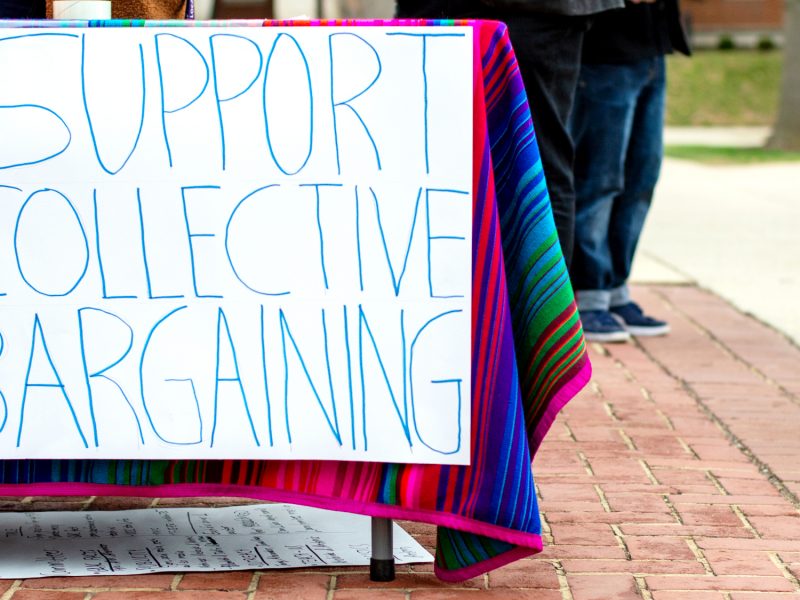Views expressed in opinion columns are the author’s own.
In 1776, the first-ever fraternity was established in the United States, the same year as the country itself. Unfortunately, at that time, every new establishment was built with a foundation centered around racism and the unfair treatment of people of color. Greek life societies were definitely no exception.
However, as our country has very gradually become more accepting and inclusive, Panhellenic Association and Interfraternity Council organizations have struggled to keep up. Fraternities and sororities are deeply rooted in traditions, most of which are incredibly outdated and makes absolutely no sense. Unfortunately, these entrenched traditions make it difficult to encourage any sort of change, especially considering the powers of strongly opinionated alumni.
Fortunately, there is a light at the end of the tunnel. As the chief diversity, equity and inclusion officer for the Kappa Alpha Theta organization at the University of Maryland, I get a first hand look at the progress being made. This academic year, Kappa Alpha Theta made the diversity and inclusion position an executive one, which means I work with each and every committee to ensure that diversity, equity and inclusion are valued in every area of our chapter.
This includes the executive recruitment board.
For those who aren’t involved in a sorority, observing recruitment from an outside perspective can be confusing, and at times, concerning. As stated in a recent column in The Diamondback, “Scrolling through photo after photo of white girls smiling in front of red brick homes in matching outfits, it’s hard to tell one chapter from another.”
I can see how, from the outside, you may not be able to see the efforts sororities are really undertaking. So what actions are we taking in order to embrace and encourage diversity?
The first step is to educate.
Before recruitment, the recruitment board and I try to emphasize to our chapter that every girl should be treated equally when they’re going through the process. This means that not only their skin color, but the quality of their clothing, the way they speak or where they are from should in no way determine whether they are a match for our chapter.
For Kappa Alpha Theta in particular, I made a point to talk about social biases and how they can affect one’s subconscious decisions. By learning about these predetermined judgements, I felt that the women of the chapter would be prepared to identify their own unfair social biases and work on improving them.
So, you may ask, why leave cameras on during virtual recruitment if physical traits are irrelevant?
Well, to this question, I will raise another one: Why do people prefer FaceTime to calling?
It is important to see someone when you are talking to them. This isn’t some narrow-minded excuse, either: More than half of communication is facial, according to a University of Minnesota study. The truth is, we don’t want to see you so we can judge you or point out any flaws. Seeing a person’s laugh or smile is so telling in a positive way, especially for those who may be a bit more shy, and it would be unfair to be stripped of that opportunity during the recruitment process.
There are also many opportunities within Greek life to learn more about diversity and become a better advocate for inclusion. The PHA, which is in charge of many of the university’s sororities, provides the diversity and inclusion officers with opportunities including workshops and discussions to learn more information about how to encourage, embrace and implement inclusive practices, which then trickles down to each corresponding chapter.
The next step is to demonstrate alliances.
As members of a sorority, we want to encourage others to join and feel the sense of community that we feel, no matter who they are. Although some feel that posting on social media in response to social justice movements may seem inauthentic or simply for an “aesthetic,” we genuinely are using our platform with the goal of encouraging our followers to educate themselves on causes we feel are important. By demonstrating support on a public platform, our mission is to ensure that any women of color who may be considering joining our organization can feel comfortable and supported enough to do so. People tend to assume that Greek life discourages diversity, but the truth is that we want diversity. It makes us stronger and smarter, and we’ll continue to encourage it alongside the rest of the university and work toward disarming the corrupt foundations of our origin.
Samantha Eddy is a cinema and media studies and English major. She can be reached at Samanthaeddy06@gmail.com.



